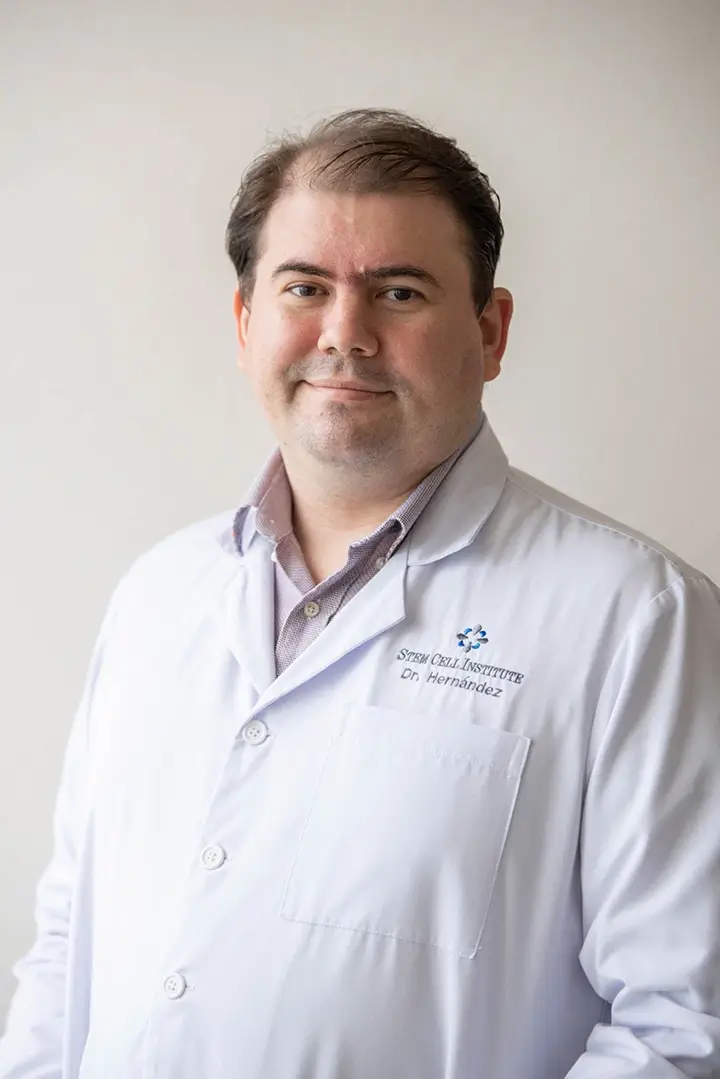Miami Herald, Fred Tasker ftasker@MiamiHerald.com
University of Miami cardiologist led by Dr. Joshua Hare reported success in a small, preliminary human clinical trial of a new stem cell therapy they hope some day will routinely mend human hearts and reduce the need for lifelong medication, possibly even for transplants. The study was published in the peer reviewed journal Circulation Research (Williams et al. Circ Res. 2011 Apr 1;108(7):792-6.).
In the study eight patients of approximately 57.2±13.3 years of age received transendocardial, intramyocardial injection of their own (autologous) bone marrow stem cells (mononuclear or mesenchymal stem cells) in left ventrical scar and border zone. All patients who underwent the procedure had no serious adverse events. Cardiac MRI at 1 year demonstrated a decrease in end diastolic volume (208.7±20.4 versus 167.4±7.32 mL; P=0.03), a trend toward decreased end systolic volume (142.4±16.5 versus 107.6±7.4 mL; P=0.06), decreased infarct size (P<0.05), and improved regional LV function. This study is different than previous studies performed by Dr. Hare’s group that used stem cell administration intravenously. The belief is that directly placing the stem cells into the heart muscle may cause better therapeutic effects as compared to injection intravenously and letting them home to where they need to be.
“That’s the Holy Grail, the quest the whole field has been pursuing for close to a decade, and this is evidence we’re on the right track,” said Dr. Joshua Hare. He did, however, emphasize that the current trial is only a small, run-up phase of extensive testing that will take up to five years and involve dozens of hospitals and hundreds of patients before obtaining U.S. Food and Drug Administration approval for routine use. The trial was primarily about the safety of the procedure, and all eight patients came through without significant side effects, he said. The procedure also reduced the size of hearts swollen by previous heart attacks, a condition called cardiomyopathy or simply heart failure.
Max Eaton, the 68-year-old direct-buy franchise owner who was patient No.1 said that he is thankful he was part of the trial, adding that he had just completed a 2.8-mile, 41-minute walk around his neighborhood in Lauderdale-by-the-Sea. “I feel very grateful,” he said. “Almost certainly, I would be deceased or in much worse shape had I not had the opportunity to be in this program.”
Eaton’s part of the testing is finished. He says he’s glad he took part, even though it hasn’t quite turned him into an Olympic runner. “I still get chest pains at times. It depends on the time of year. I had my heart attack 11 years ago in the fall. That’s when I get them,” he said. But he adds: “I’m not ready to go. I’ll keep going as long as I can enjoy what’s to be enjoyed.” An explanation of stem cell clinical trials for heart failure may be seen at in one of our videos, presented on this link http://www.youtube.com/watch?v=JfSdCYFNdPw
New stem cell study promises to heal the heart

Reviewed By:
Hernan H. Hernandez, M.D.
Staff Physician
Dr. Hernandez, a 2002 graduate of Latina University in Panama, specialized in health services management and worked as the general director for health care at La Joya Center before joining the Stem Cell Institute team. He has been involved with direction for community programs involving patients with tuberculosis, HIV and other chronic infectious diseases.
